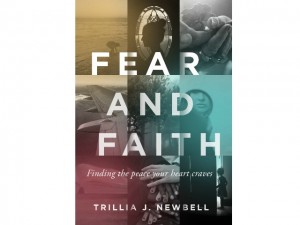“Come to me, all who labor and are heavy laden, and I will give you rest. 29 Take my yoke upon you, and learn from me, for I am gentle and lowly in heart, and you will find rest for your souls. 30 For my yoke is easy, and my burden is light.” Matthew 11:28-30
Perhaps one of those oft-quoted verses to a friend who is struggling, or to our own soul’s when we are feeling burdened. However, like me, has your focus been on what Jesus will do for us? We are told to come to Jesus and he will give us rest and to take his yoke for his burden is light. Yet, this focus causes us to miss what Jesus reveals to us about himself- we can come to him for he is gentle and lowly in heart. I feel that I haven’t ever really stopped to ponder what these verses mean, too intent on grasping hold of the promises of rest that Jesus’ offers. Enter Dane Ortlund’s book, “Gentle and Lowly: The Heart of Christ for Sinners and Sufferers (2020, Crossway)”
Ortlund takes us on a journey into the heart of Jesus. He shows us what these verses mean and the depth of what Jesus really offers us. As layer upon layer of the heart of Jesus is revealed, Orland allows us to marvel at the gift of relationship with Jesus. After reading this book, I find I am changed.
Reading the Puritans has been a personal goal for some time, though I haven’t quite mustered the courage to sink my teeth into one of their books yet. Ortlund’s book draws on his study of the Puritans to expound on the heart of Jesus, which acts as a wonderful bridge for anyone like me. I loved the way Orland weaves quotes and central truths throughout his book, providing his reader with a beautiful taste of rich language and insightful truths.
A number of concepts Ortlund presents are ideas that have caused me to need deeper thought on. As Ortlund says, “The Christian life, from one angle, is the long journey of letting our natural assumption about who God is, over many decades, fall away, being slowly replaced with God’s own insistence on who he is. This is hard work. It takes a lot of sermons and a lot of suffering to believe that God’s deepest heart is “merciful and gracious, slow to anger.” (p. 151). In our sin-infected bodies and minds, we are filled with thoughts of God first as judge and second as loving Father. We are so overcome with frustration at our inability to fully escape sin, that we withdraw a little from God for fear of his disappointment, rather than allowing our sin to drive us closer to his heart, recognising the immense depth of his grace and compassion to those who love him. We can question whether this sin is the last straw, the one where God will throw us to the curb once and for all. However, this isn’t Godly thinking, for “Jesus will love [us] to the end. Not only is [our] future secore, on the basis of his death; [our] present is secure, proven in his heart. He will love [us] to the end because he cannot bear to do otherwise. No exit strategy. No prenup.” (Ortlund, p.204).
My one main criticism is that the holiness and righteous anger of God at sin, characteristics repeatedly shown throughout the Bible aren’t dealt with in-depth. I recognise though that this wasn’t the focus for this book and perhaps something we are more readily accepting of. For me, I find that I struggle to fully comprehend how God’s holiness and anger at sin can coexist with his deep compassion and love for me. I think this is a struggle however because in our humanity, our knowledge of the depth of love and the purity of God’s holiness is limited. I also think there is a tension because we don’t like to discuss with our non-Christian friends about sin and the consequences for it (it makes us and them uncomfortable), and so more easily discuss God’s love. This imbalance in a sense, weakens the Gospel through not presenting the full true picture. If we aren’t destined for death and separation from God, why would we need saving in the first place? Ortlund does base his thesis for his book on the one phrase from Matthew 11:28-30, that isn’t repeated anywhere else in the New Testament, which could be dangerous. However, he also explores other passages from the Bible to ensure he is backing up his theological ideas with sound scriptural references. At times, I questioned whether there was an over-reliance on the Puritans, as a few times their language could have obscured meaning for those unwilling to dig deeply for the meaning. A few ideas he presents I am still thinking over, however as I read, I was filled with wonder as I was reminded of the depth of love Jesus has for us, that he would give his life to save you and me.
“Gentle and Lowly” provides lots to think and reflect on. In 23 chapters, Ortlund highlights many topics, including the love and compassion Jesus has for his followers, the Trinity, the gentle kindness Jesus shows towards us, our desire for law contrasted to Jesus’ desire for lavish love. Throughout all chapters, we are continually reminded that Jesus’ heart is for his people, he is approachable and we are left with a call to come. As Ortlund concludes: “Go to him. All that means is, open yourself up to him. Let him love you. The Christian life boils down to two steps: 1. Go to Jesus. 2. See #1.” And isn’t this the truth? Each and every day, moment by moment, Jesus’ lavish love and compassionate grace calls us to come, come to his heart, for he is ready and waiting.
Purchase from The Wandering Bookseller.








